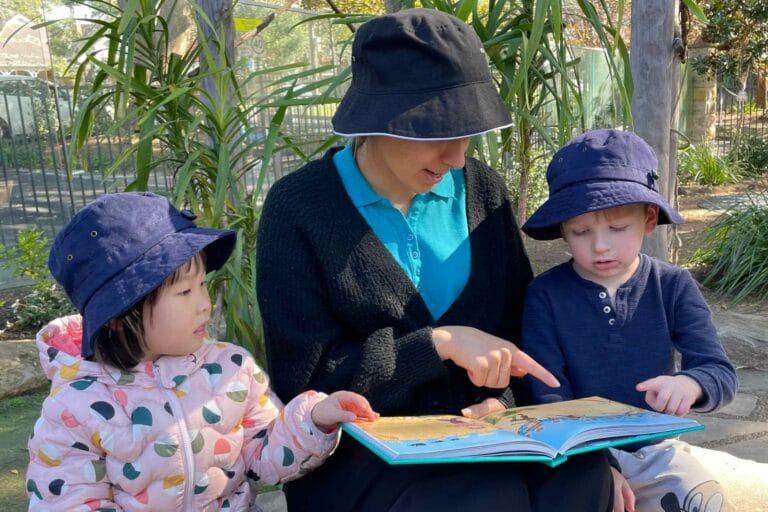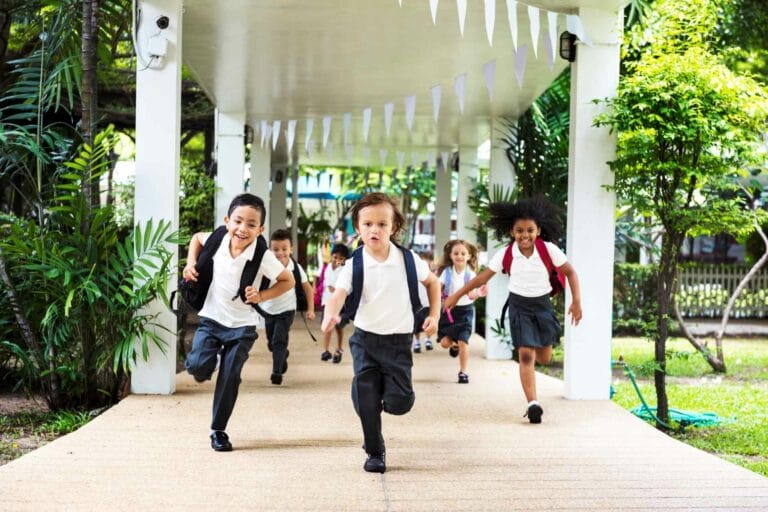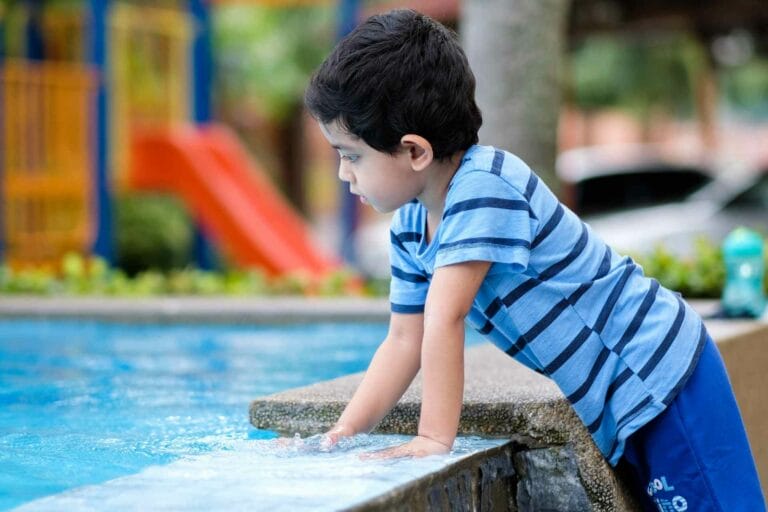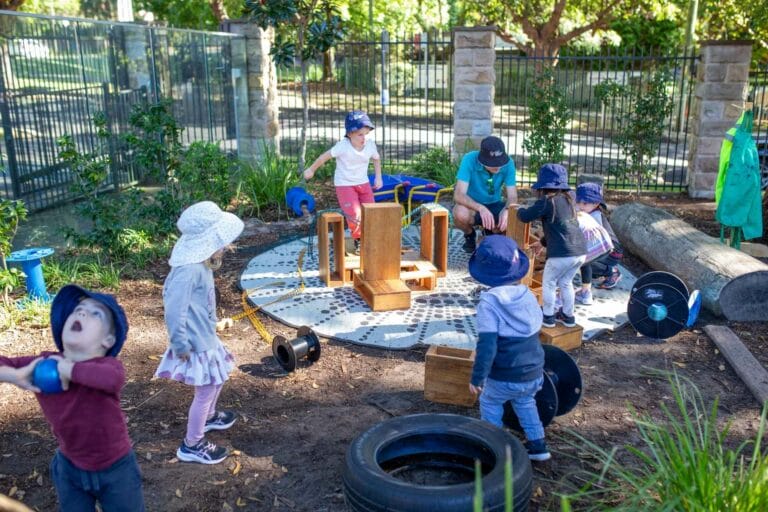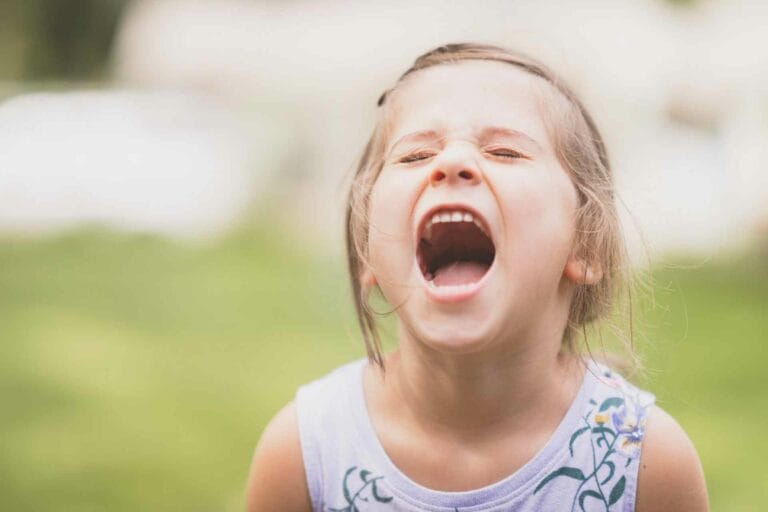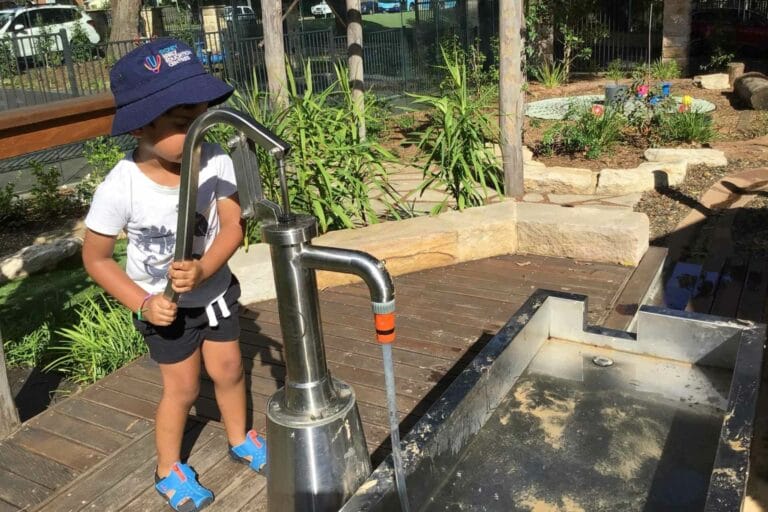Finding the fun in sustainability with children
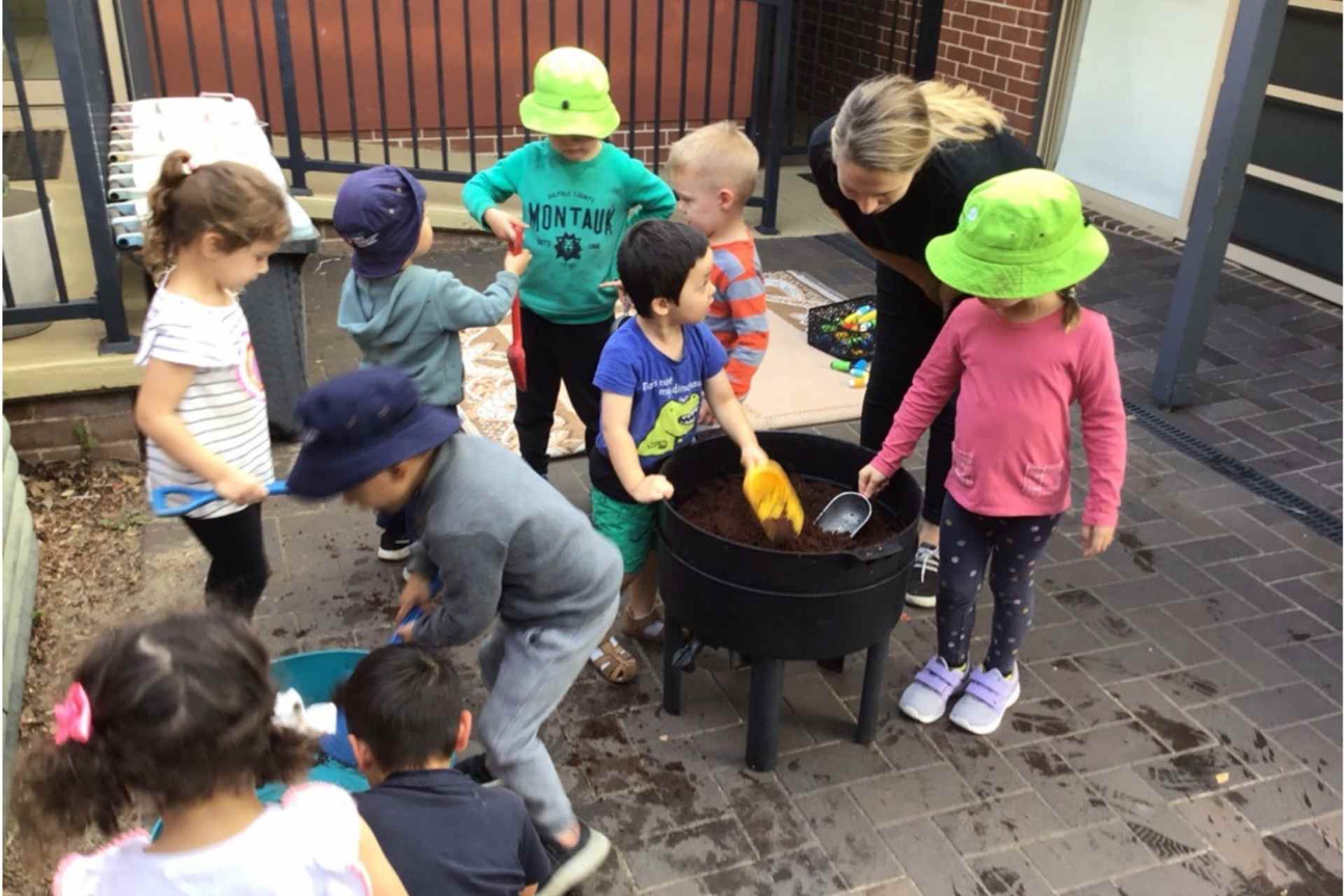
A group of representatives from across our Services have recently taken part in a sustainability project. The aim is to create fun and learning opportunities for sustainability with children. They have been reflecting on our current practices, researching, setting goals, and making plans for our sustainable future. Our project team have been researching ways to embed the practices of reduce, reuse, recycle and beyond into each of our Services. Part of this is to reduce our food waste and restore nutrients to our gardens.
We are also looking at ways to recycle and reuse with the children, and overall to show our respect for the environment and land on which we work and play. We are taking the time to focus on sustainable education and moving from ‘doing’ to ‘embedding’ sustainability in our everyday practices.
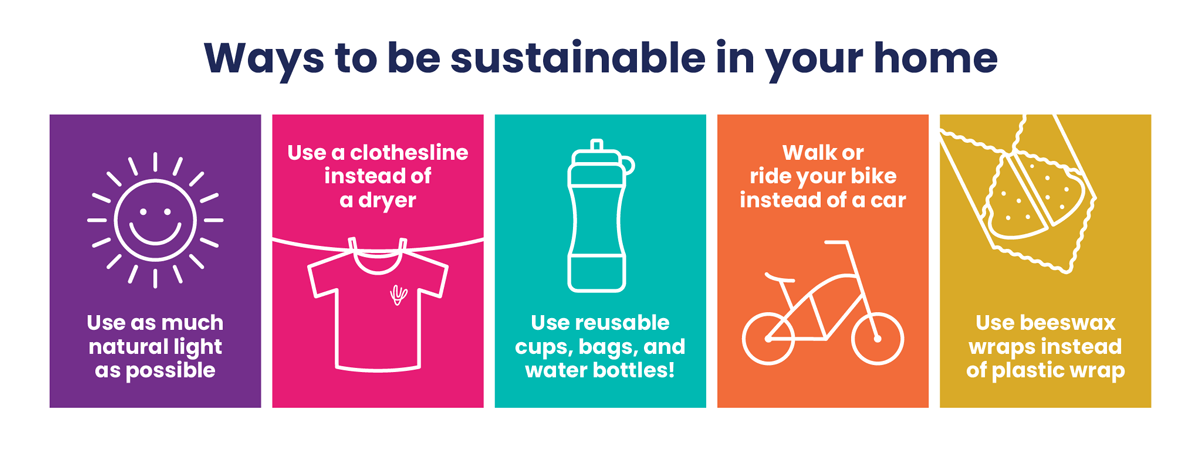
Beyond the 3 ‘R’s
We know the standard 3Rs – Reduce, Reuse and Recycle but what is beyond? Here is what we have been working on during the project:
- Refuse: What can you say no to nicely?
- Repair: Let’s teach to repair!
- Rethink: Ask yourself –
- Before buying new:
- Is it a need or a want?
- Do I need something new? Second hand?
- Can I reuse or repurpose it?
- Before throwing away can you…
- Keep it longer
- Get it repaired
- Repurpose it
- Gift or donate it
- Recycled it
- Before buying new:
- Repurpose: Can I give it a second life?
- Recover/Restore: Setting up worm farms, compost and planting trees!
- Remember: Bring your reusable bags, cups, water bottles with you when out and about!
- Respect the Earth: consider, what do we buy today and throw away tomorrow?
- Record: Consider mapping what we throw away and seeing what impact or footprint we have.
You can find out more about The ‘R’s’ here.
Our SEEC short-term projects
Each of our sustainability representatives have put together a summary about their different projects and ways for you to get involved at home!
Helping our chickens, helping the environment
By Sunita and Anu from Westmead Early Education Centre
Sunita and Anu took charge of their role in the Sustainability Team. From here the journey advocating for sustainable environments in WEEC continued to grow. Sustainability has always been embedded in our daily practices. But after taking part in the project we took the lead and started encouraging our Service to reflect on areas where we could be more sustainable in every way.
Flyer and Cheekypea are our chickens at WEEC. We decided to start doing some research into chickens at the start of this year. Looking at things like what they can eat and how we can better care for them.
Including our children and families in the research was central to our process. The perspectives of children and families helped us to find the best food for our chicken’s digestive system. We created posters that are on display which enable the children to make decisions on what food the chickens can eat.
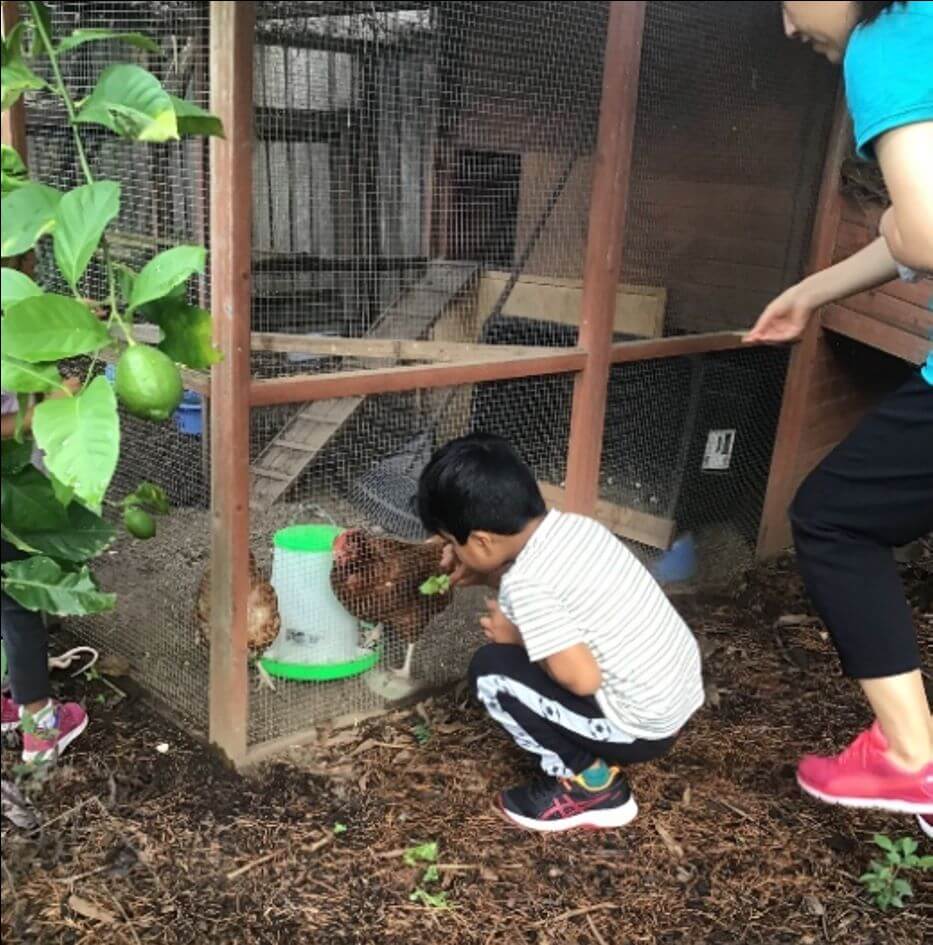
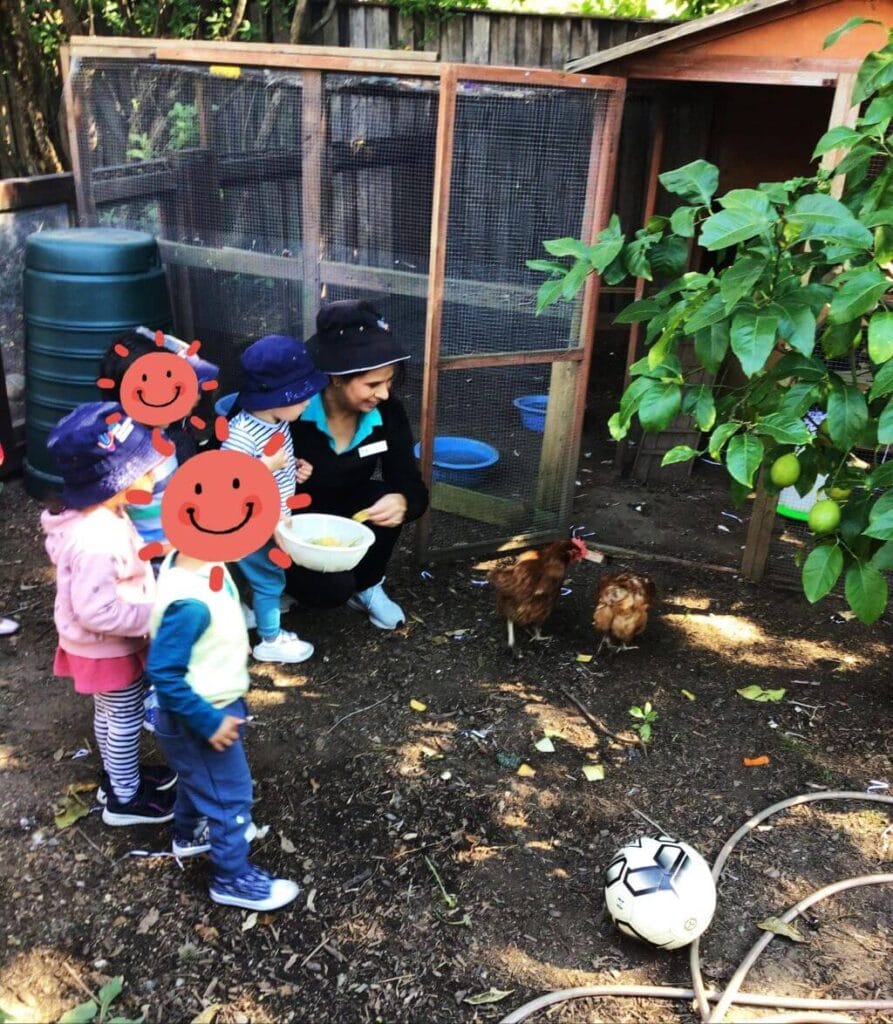
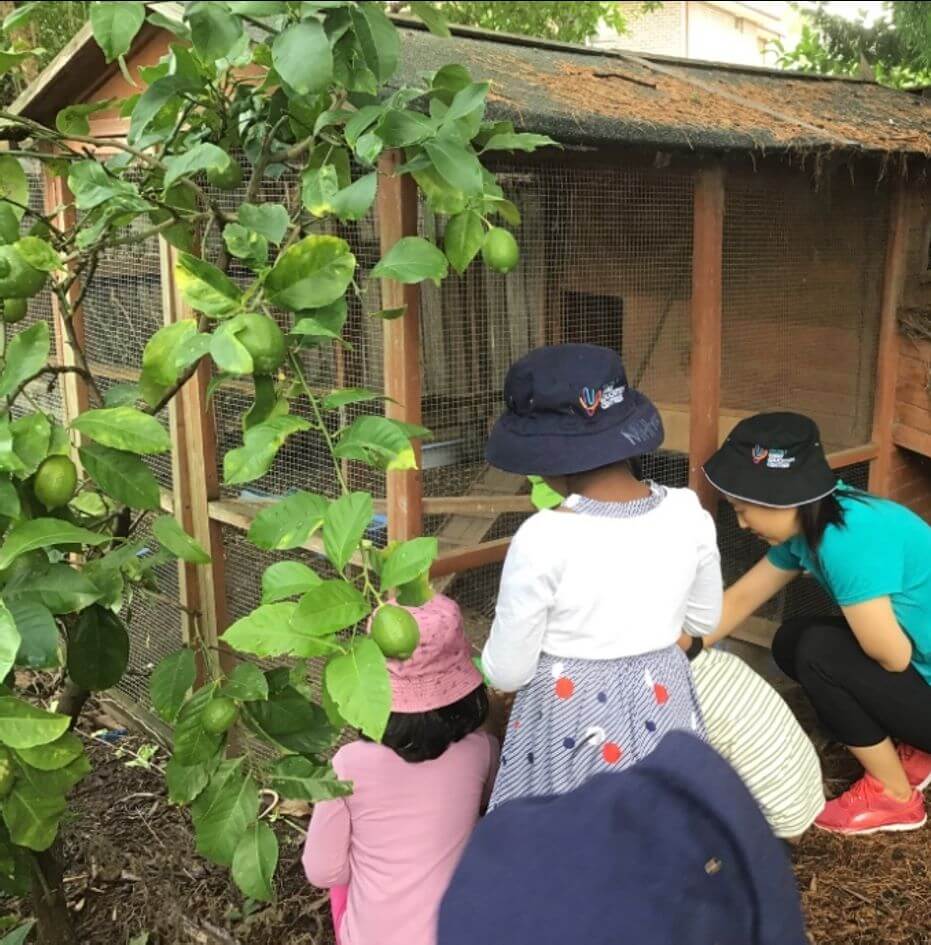
Now all of our educators, as well as the children, are taking the initiative to find the right scraps from our mealtimes to feed to Flyer and Cheekypea.
We are educating our fellow team members about the research. As well as teaching children how sustainability impacts our environment and community on a daily basis.
It has been wonderful to share what we have learnt. But what has been even rewarding, is to see the changes in not only the chickens but the children too. The children really enjoy taking ownership. They have shown an increased awareness of which foods our chickens can and can’t have. It is a joy watching. The children collect the food scraps and match them with the display posters. Then they sort the food out for Cheekypea and Flyer.
Learn more about why chickens are great for the environment.
Worm farm relocation
By Joshua and Alice from Northmead Early Education Centre
In both communities, we always begin by building strong, secure attachments with children and take time to learn about their interests, strengths and abilities. Children learn best when they feel safe and secure. They need to feel interested as well as engaged in the learning experiences being offered to them.
Sustainability has consistently been a core focus for us at NEEC. In order to renew our commitment to our sustainability practices, we made the choice to reassess how our worm farm could positively impact the centre.
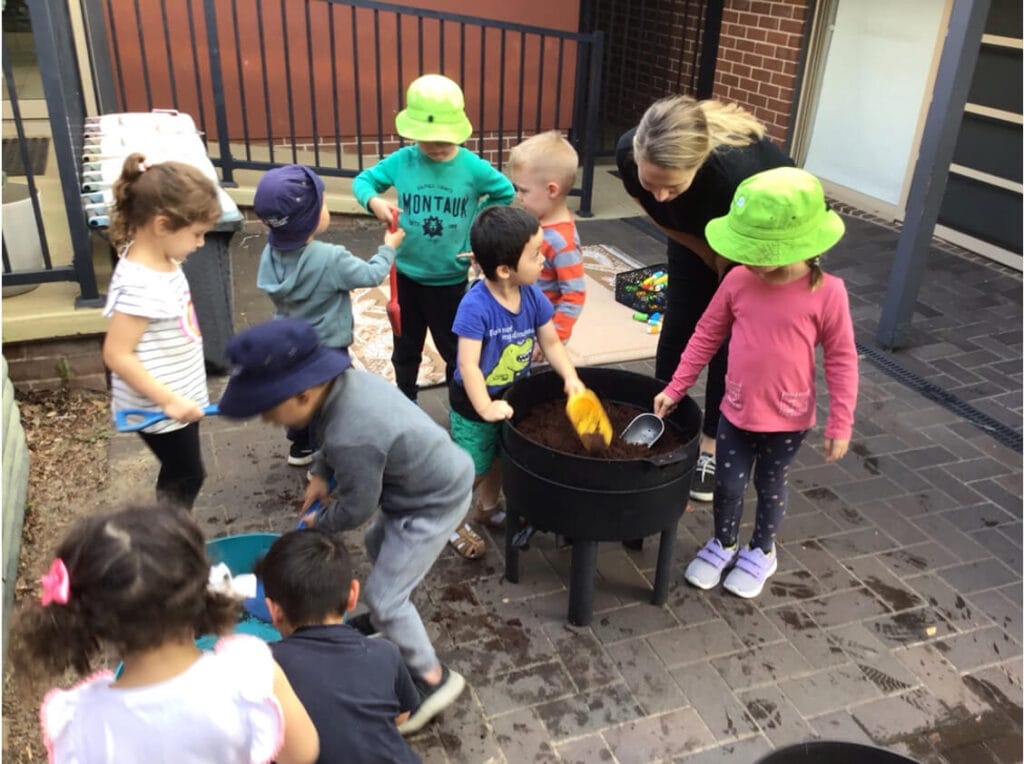
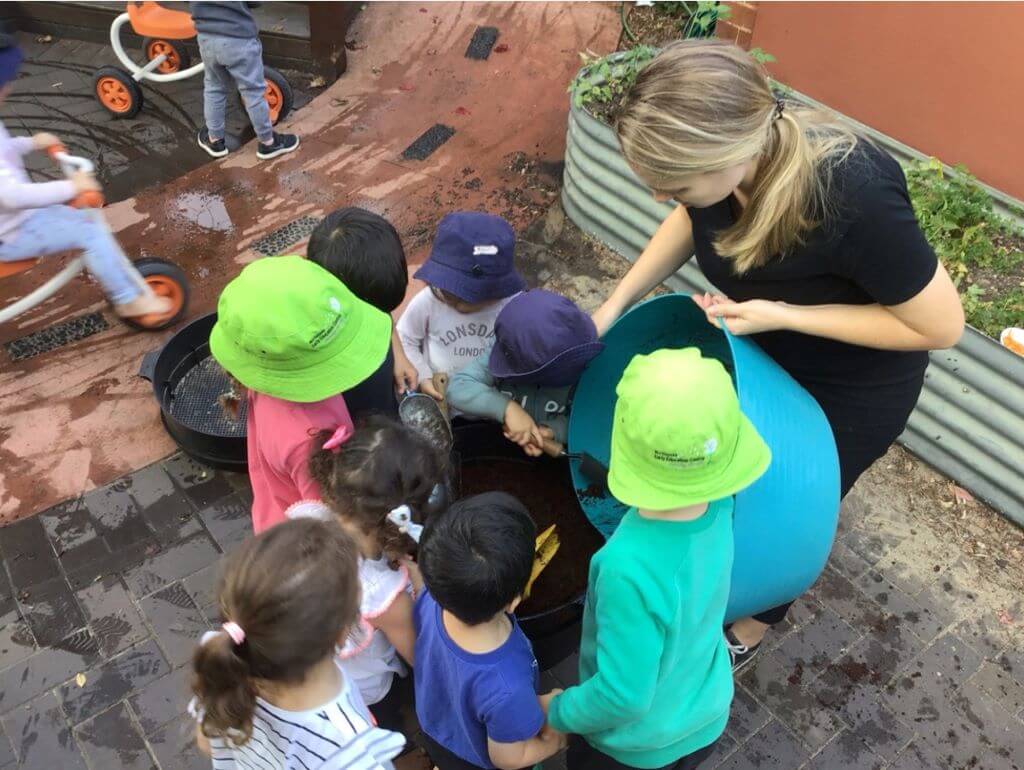
We relocated the worm farm from the Early Learning centre to the Preschool, creating the opportunity to embed a sustainability culture into the program and practices of our preschool children. We believe this relocation allows for greater educational potential, enabling the children to get involved and really take pride and ownership over the care and impacts of the worm farm.
It has been lovely to see the preschool children so enthusiastic about the worm farm project. They have cleaned out and repaired the worm farm ready for its new home. We’ve been adding lots of food scraps from meal times and discussing appropriate food for our small new friends with the children and the educators.
Want to create your own worm farm at home? Learn how here!
Our Recycling and Reusing Project!
By Jessica and Natalie from Cheltenham Early Education Centre
Jessica and Natalie reached out to CEEC’s local community to gain a better understanding of what being sustainable means to them as well as how they engage in sustainable practices in their everyday lives. They were overwhelmed by the passionate responses they received from families. This led them to create a display to share and celebrate our community’s knowledge and practices as well as to raise further awareness.
Over the previous few months, they have also reflected with their team of teachers and educators about current practices and ways to ‘think deeper and bigger’ about sustainability at CEEC and in our wider community. Composting and recycling/reusing our paper were two areas we were able to immediately identify as areas for improvement. We felt that our worm farm, already being quite successful, could extend to include composting to further reduce our food waste and, paper, being regularly used in everyday experiences with the children was often being recycled into our paper bins if not taken home.
We truly hope that these insights have helped to kick start your children’s love of sustainability. If you would like to find out more about our Service you can book a tour or send us a message about the sustainability challenges in your household. We’d love to hear from you!
